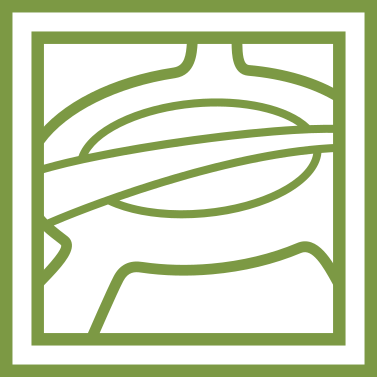2024. June 11.
DigiTwin workshop at BME
The Digital Twins Master Course recently held a successful onsite event, supported by EELISA, bringing together learners, mentors, and industry experts for three days of intensive learning and collaboration. This event was particularly valuable as it provided an opportunity for face-to-face interaction and group work on capstone projects, complementing the primarily online format of the course.

Learners, Mentors, Coordinators at the Onsite event on the BME Campus
Keynote Speakers and Panel Discussions
The event featured several distinguished speakers who shared their expertise on various aspects of digital twin technology. János Scheffer, Head of IT at MÁV Infrastructure, delivered an insightful presentation on the application of digital twins in the Hungarian Railways. He highlighted how this technology is being used to improve infrastructure management, operational efficiency, and safety in the railway sector.

János Scheffer presenting at the onsite event
Following Scheffer, Dávid Szántay, Project Manager at Budapest Közút Zrt., discussed data collection and data publishing at Budapest Közút. His presentation emphasized the critical role of accurate data in urban traffic management and how digital twins can be utilized to enhance traffic flow and reduce congestion in cities.
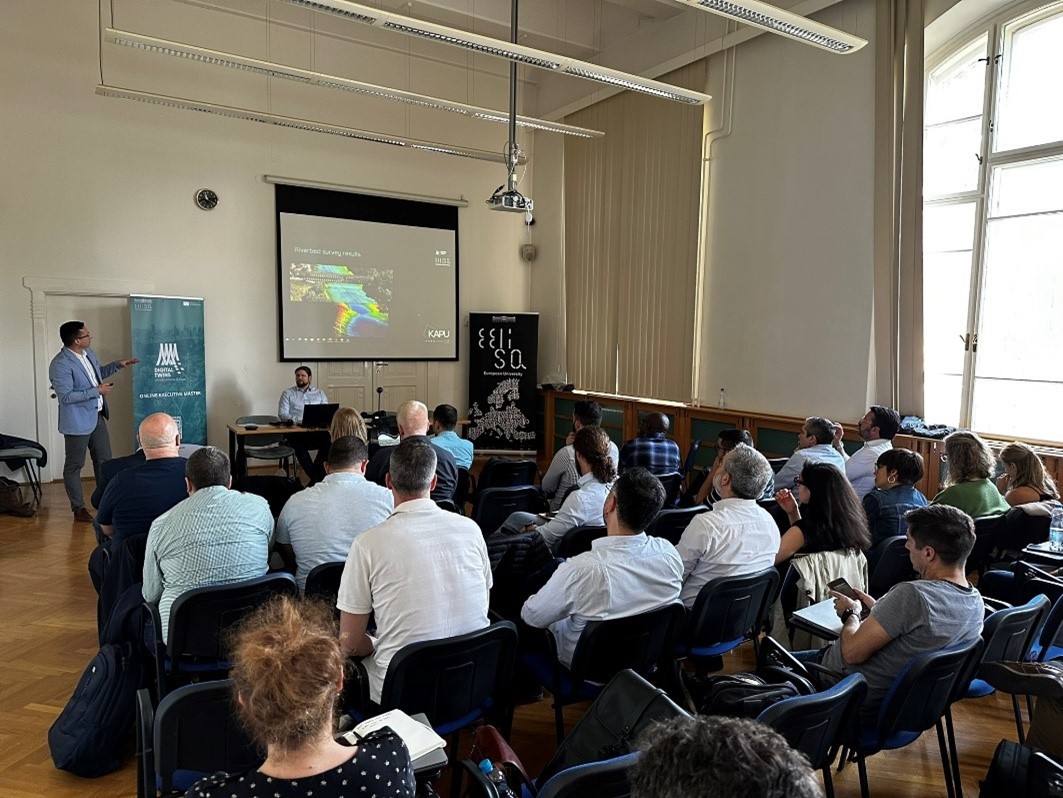
Presentation of Dávid Szántay
AI and Railways: Future Perspectives
On the second day, Dr. Sakdirat Kaewunruen, a professor in Railway and Civil Engineering at the University of Birmingham, UK, captivated the audience with his talk on the integration of artificial intelligence (AI) in the railway industry. Dr. Kaewunruen provided a comprehensive overview of how AI can revolutionize railway operations, maintenance, and safety, offering a forward-looking perspective on the future of rail transport.
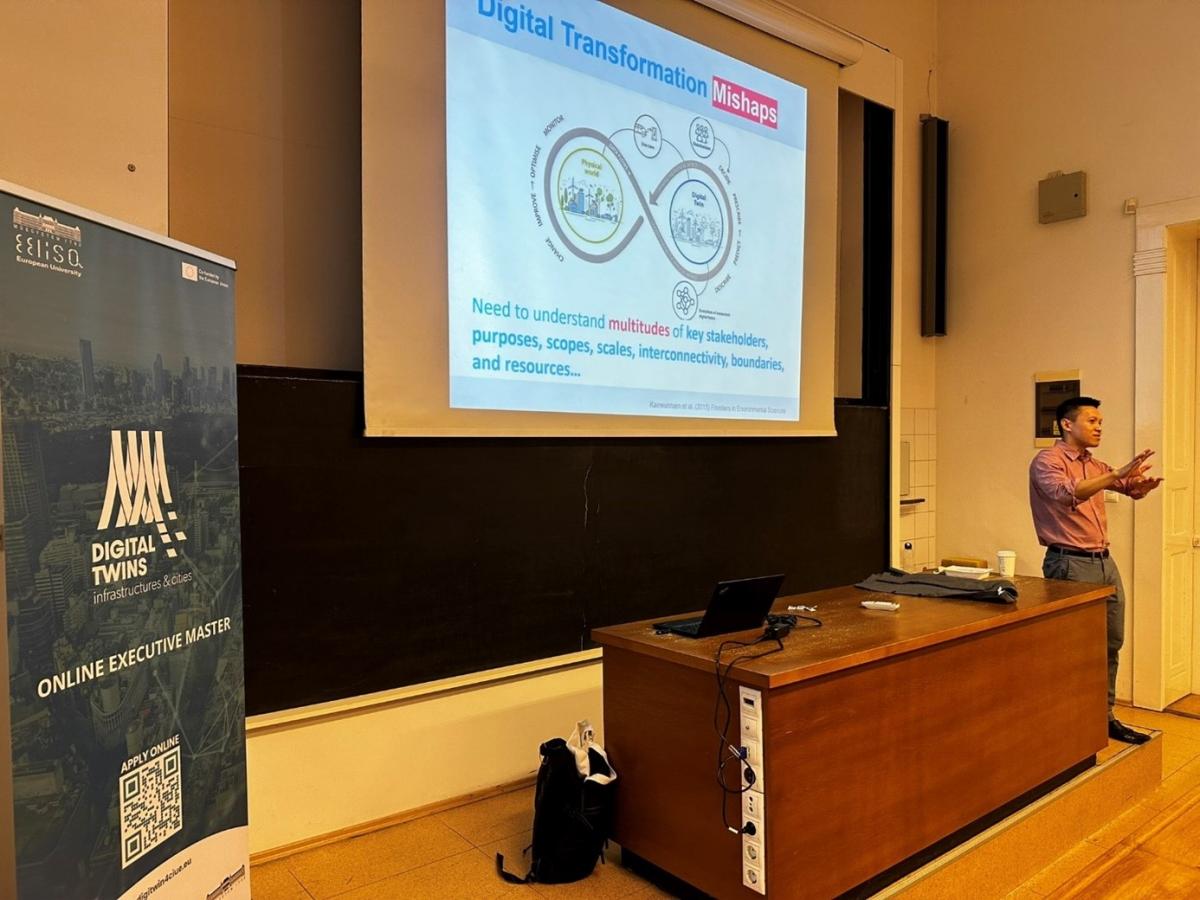
Presentation of Dr. Sakdirat Kaewunruen
Capstone projects
During the onsite event, learners had the invaluable opportunity to collaborate face-to-face on their capstone projects, an essential component of the Digital Twins Master Course. Grouped by their project topics and interests, participants spent some time catching up on their progress, outlining goals, objectives, and timelines. This face-to-face interaction facilitated rapid and effective communication, allowing for the swift exchange of ideas and collaborative problem-solving. Mentors and facilitators were on hand to provide consultation and support, ensuring that each group could develop robust project proposals and initial plans. The session concluded with brief presentations from each group, where they shared their progress, challenges, and next steps, receiving valuable feedback and guidance from mentors and peers. This collaborative environment not only accelerated the development of their projects but also fostered a deeper sense of community and teamwork among participants.

Presenting the progress report of a team collaboration for the capstone project
Industry 4.0 Workshop and Site Visits
The third day was dedicated to practical learning and real-world applications. Learners and their mentors participated in an engaging workshop at the Industry 4.0 Technology Center at BME. The workshop featured over 20 interactive showcases of Industry 4.0 solutions, allowing participants to gain hands-on experience with cutting-edge industrial technologies. This session provided valuable theoretical insights and demonstrated innovative methods on a small scale.
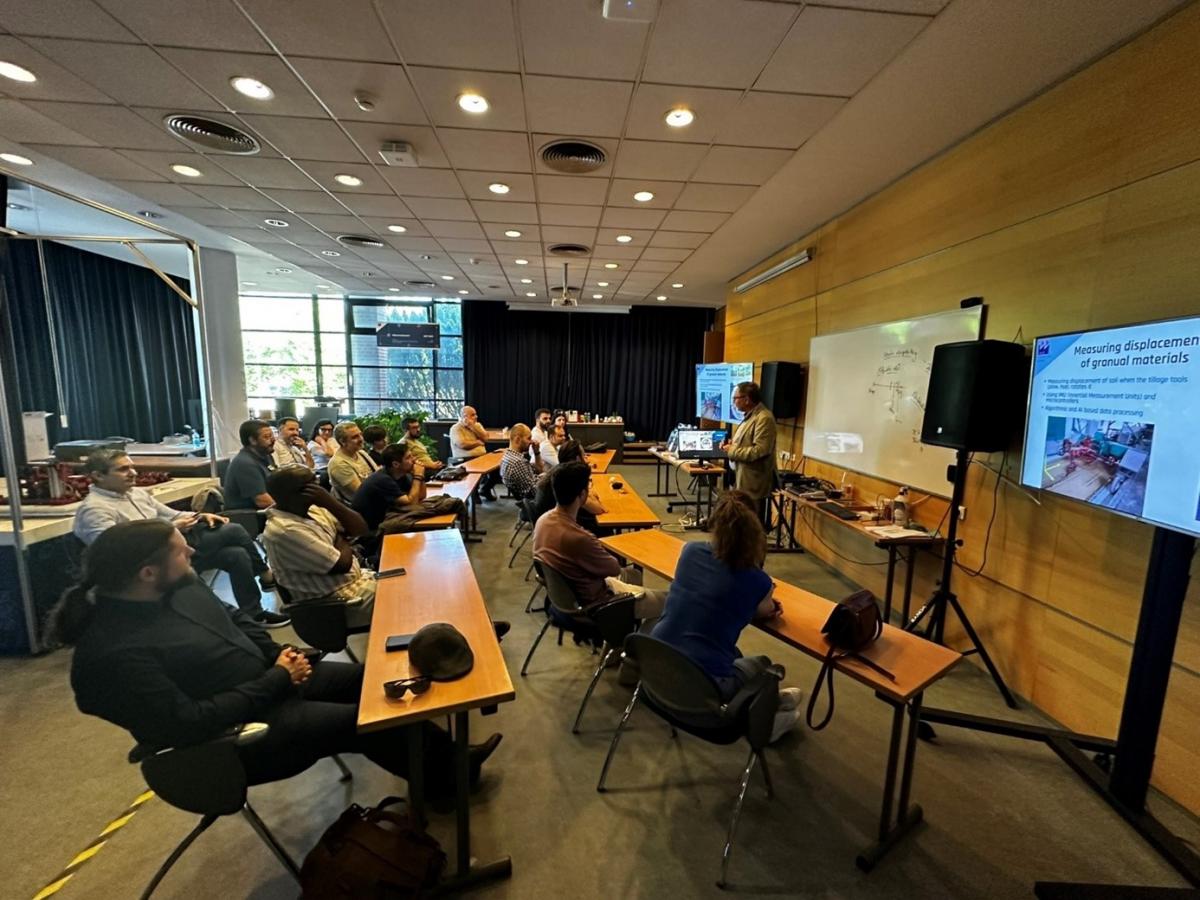
László Kovács briefly presenting the Industry 4.0 Technology Center's work before going through the real-life demo projects
Additionally, participants visited the MOL Tower's Skydeck, a prime example of modern design and construction methods in the industry. This visit underscored the practical applications of digital twin technology in contemporary architecture and construction projects.

Last day, on the MOL Tower's Skydeck, Budapest with BME in the background
Collaborative Discussions and Future Enhancements
A significant highlight of the event was the opportunity for participants to share their experiences and discuss potential enhancements to the Digital Twins Master Course. These discussions fostered a collaborative environment, enabling learners, mentors, and industry experts to exchange ideas and collectively envision the future of the program.

Discussing the program during the event
The onsite event also provided ample opportunities for participants to bond and connect outside the official programs. Evenings were filled with informal gatherings where learners could relax, share experiences, and build lasting friendships. One highlight was the chance to experience the rich local cuisine during group dinners, which offered a delightful taste of Budapest's culinary traditions. Additionally, participants had the opportunity to sightsee and explore the beautiful city of Budapest, with its stunning architecture, historic landmarks, and vibrant culture. These activities not only enhanced the overall experience but also helped to strengthen the sense of community among participants, making the event memorable and enriching on both professional and personal levels.
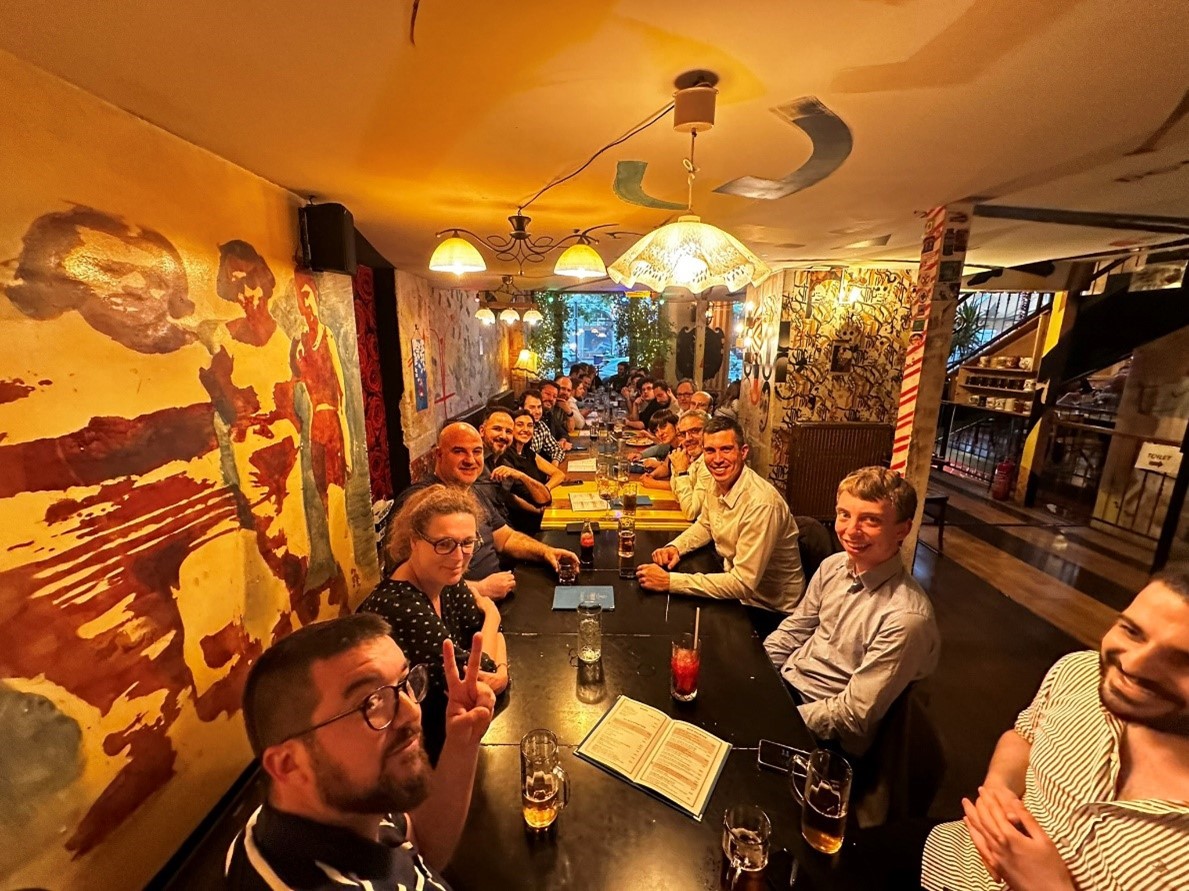
Dinner at Szatyor Bár, near the university Campus

Sightseeing in Budapest, Parlament in the background
